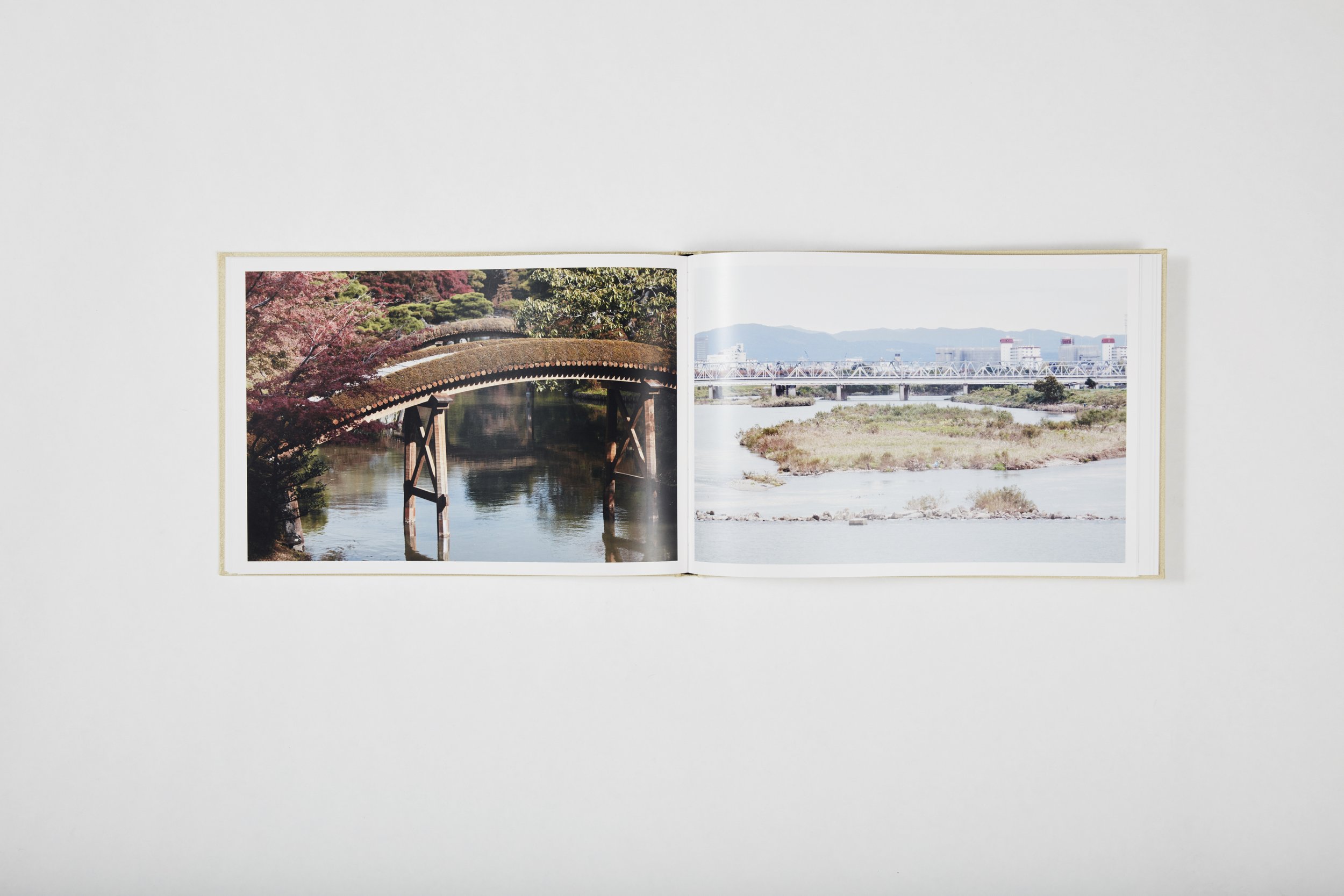Mono no aware / 物の哀れ:
The Poignancy of Things
by Brett Boardman.
With an introduction by Pico Iyer
Design: Mark Gowing
Published in 2015.
Format
Hardback (Japanese silk bound, with blue tarpaulin bookslip), edition of 200, includes one pair of signed and numbered prints, 96 pp, 390mm x 267mm
ISBN
9780987228192
Recognition
"[A] chance occurrence gave Boardman a new angle on 'Japan’s architectural wonder of the world'…The resulting photographs [.] speak to more than just a building."
– Toby Fehily, Art Guide Australia
Uro is pleased to announce the launch of a limited edition volume of photographs by Australian photographer Brett Boardman, launched alongside an exhibition at the Japan Foundation in Sydney entitled ‘Mono no aware: The Poignancy of Things’. This large format volume consists of 42 sets of paired photographs captured in Kyoto in 2011, juxtaposing the 17th-century imperial villa Katsura Rikyū with a makeshift shelter under a nearby bridge.
Few examples of Imperial Japanese architecture are as revered as Prince Hachijō Toshihito’s Katsura Rikyū. ‘Rediscovered’ by the German architect Bruno Taut in his exploration of Japanese architecture from 1933-36, it featured prominently in his subsequent publication, Houses and People of Japan. This was followed some years later by the seminal publication Tradition and Creation in Japanese Architecture by architects Kenzō Tange and Walter Gropius with photographs by Ishimoto Yasuhiro. Over the decades that followed this publication's release, Katsura Rikyū has become a focal point in the dialogue between East and West and between tradition and modernity.
In considering the relationship between Japanese architecture and Buddhism, Gropius writes of zazen – translated as seated meditation and the suspension of all judgment – and koan – a story or paradox designed to short-cut reason and the intellect, leading to direct realisation of a reality beyond thought. These ideas have informed the work presented here.
Boardman’s intimate photographic record of this apparently incidental adjacency transcends the stark social and temporal disparity of these structures, illuminating the ways that they echo each other in response to the human desire for tranquility, order and dignity.
The volume includes an introduction entitled 'Sunlight and Shade in Katsura' by essayist and novelist Pico Iyer.
Statement by Brett Boardman
"Here, the revered and preserved is paired with the neglected and discarded in a manner that encourages us to question how we ascribe value, not only to objects but also to lives."
– Marnie Morieson, Architecture Australia
Photography has long been compelled by the fleeting nature of things. The images within this volume are the output of a spontaneous response to direct experience. The initial intent was to document the architectural, spatial and material qualities of Katsura Rikyū, however on leaving the palace I discovered a nearby second site, a makeshift shelter that seemed to more directly express Prince Hachijō Toshihito’s desire for the original Katsura to be ‘a teahouse in the melon patch’.
The images were created within two hours of each other. The palace images following in the tradition of Ishimoto Yasuhiro's classic architectural images, while the makeshift shelter images are more aligned to Ryuji Miyamoto’s study of homelessness in his Cardboard Houses.
The images may be viewed as architectural photography, documentary photography or social commentary and will hopefully continue the dialogue that began almost 100 years ago between Katsura Rikyū as a place, Japan as a culture and the West.”













